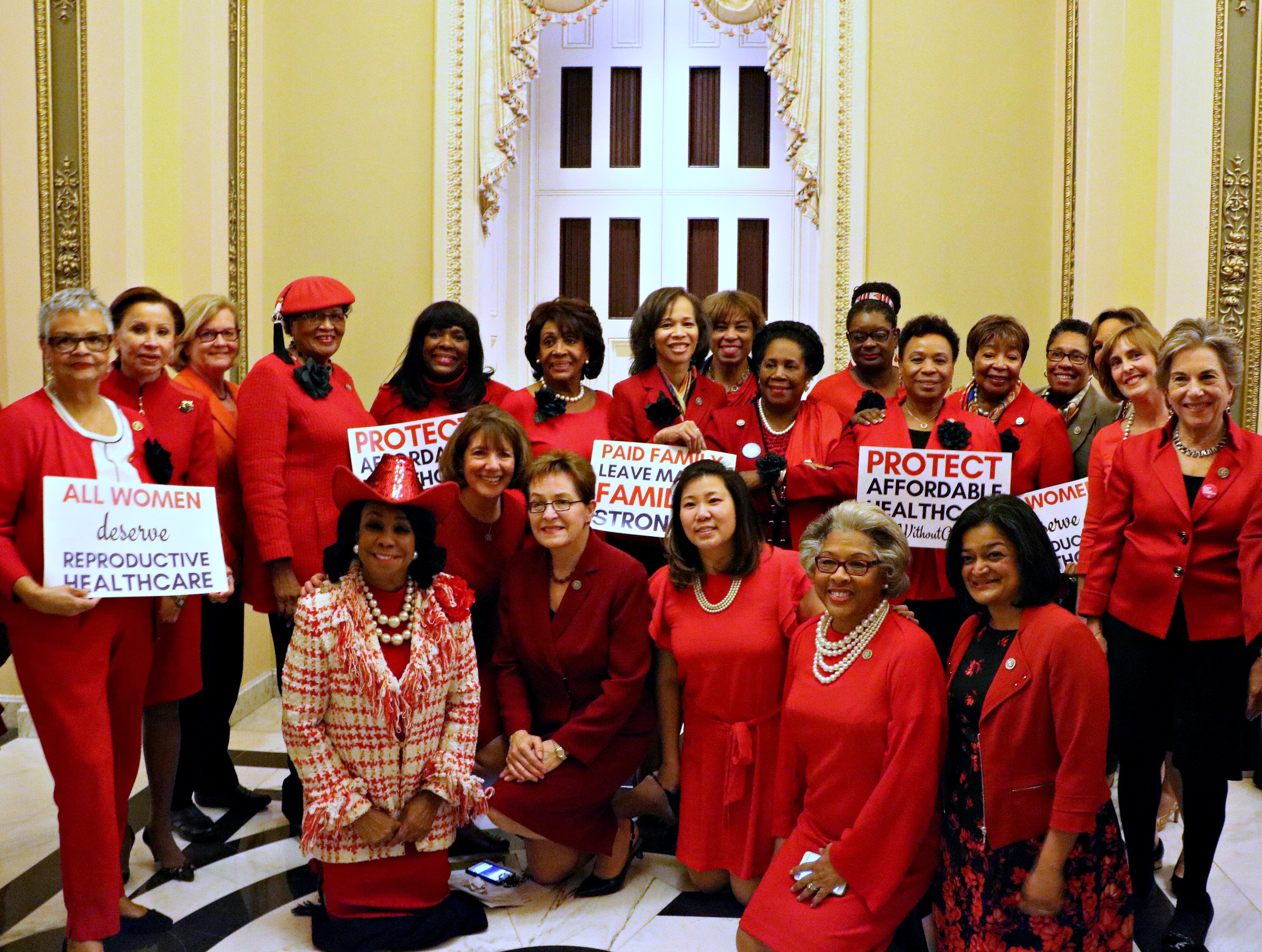Why These Democrats Are Wearing Black Flowers Today

By:
Women around the world are wearing red to support International Women's Day and the A Day Without a Woman protest. Led by House Minority Leader Nancy Pelosi (D- Calif.), congressional Democrats also wore red during their walkout demonstration on Capitol Hill. But some chose a different color to show solidarity on Wednesday.
Greeted by women's rights chants from the crowd, Democratic congresswomen gave speeches accusing the Republican party and President Donald Trump's administration of restricting women's rights.
"One thing is clear: warrior women throughout the country [and] on Capitol Hill are standing up for equality and justice," Rep. Barbara Lee (D-Calif.) said from the Capitol steps. "We are resisting President Trump and congressional Republicans in letting them know that we will not go back."
Members of the Congressional Black Caucus explained why they also wore black flowers with red.
"Women of the CBC are wearing black flowers to stand in solidarity with women of color, who continue to be at the bottom of the economic ladder in this country," said Lee told ATTN:, who came up with the idea with Rep. Bonnie Watson Coleman (D-NJ), the first black woman elected to Congress from New Jersey.
Coleman told ATTN: the black flower symbolizes that women's inequality intersects with racial inequality.
"The struggles of women are multiplied when coupled with race whether we quantify economics, education or even opportunity," she said. "I wear this flowers in recognition of my awareness of the unique and relevant cross-section of racism and sexism and my fight for those women at every turn."
 Rep. Barbara Lee's office.
Rep. Barbara Lee's office.
Sunflowers were a traditional symbol of the American women's suffrage movement. That movement was largely white, however; Wednesday's action sought to highlight that racial differences still matter in terms of discrimination.
Since 2000, women in the U.S. have earned between 77 and 79 percent of what men make — but that gap widens when you look at ethnic and racial groups.
Black and Latina women have the lowest wages in the U.S., according to Pew Research Center. Black women earned only 63 percent of what white men made in 2014, and Latina women earned only 54 percent of white males' earnings.
Coleman said that there's a lot more work ahead to make sure women of color have an equal "seat at the table."
"Myself and my fellow CBC women shoulder the dreams of our ancestors and the aspirations of those who will follow in our footsteps and must continue to push this movement forward," she said.
